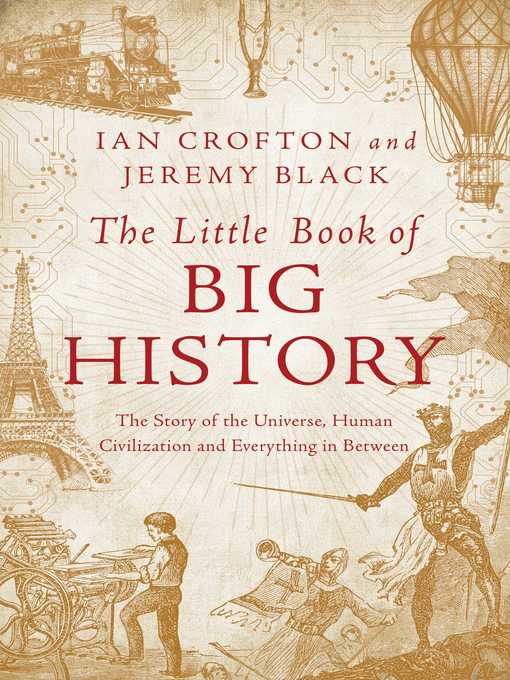
The Little Book of Big History
The Story of the Universe, Human Civilization, and Everything in Between
کتاب های مرتبط
- اطلاعات
- نقد و بررسی
- دیدگاه کاربران
نقد و بررسی

May 15, 2017
In this remarkable book, Crofton (Walking the Border), former editor-in-chief of the Guinness Encyclopedia, and Black (The Holocaust: History and Memory), professor of history at Exeter University, adopt a macrohistorical perspective as they view humankind in the context of the history of the universe. Beginning with the singularity that exploded into the big bang, they trace the birth of stars, planets, bacteria, dinosaurs, and apes before arriving at humans. Along the way, the authors investigate such topics as what makes us human and how we differ from the dead ends in our family tree. In quick succession the authors show how humans covered the globe, farmed, domesticated animals, and conquered other humans. They then turn to a more difficult issue: moral codes. While a survey of philosophy and religion concludes that moderation, tolerance, and charity are considered fundamental, many subsequent chapters demonstrate how mechanical inventions facilitated slavery or serfdom. The final section warns that intolerance and greed foment continued conflicts, global warming, economic imbalance, and other factors that may lead to the end of human civilization. As the universe expands forever into the void, Crofton and Black leave readers with “a humbling insight into how contingent and fleeting our existence is.”

June 1, 2017
A 272-page "back story to the chronicle of humanity."Former Guinness Encyclopaedia editor-in-chief Crofton (Walking the Border: A Journey Between Scotland and England, 2014, etc.) and prolific historian Black (History/Exeter Univ.; The Holocaust: History and Memory, 2016, etc.) collaborate on a cheeky concept that surprises with its distilled but generally comprehensive treatment of a vast subject, from the Big Bang to the possible end of the universe. With few exceptions, and some unavoidable biases, this little book delivers on its promise thanks to carefully thought-out summaries by the authors. While the brush strokes are necessarily broad, the book manages to convey a great deal of information in under 300 pages. Though little of this will be new to avid readers of science and history, the book is valuable for its concision in exploring an enormous range of topics. After setting the table with cosmic origins and the emergence of life on Earth, the authors focus on the rise of modern humans and the development of language, writing, technologies (in the most extensive sense), civilization, and cultures. War, religion, the arts, philosophy, economics, law, and the birth of cities and empires each get their due, as do revolutions in the social contract, politics, agriculture, electronics, and information. The contemporary issues of globalization, terrorism, environmental degradation, genocide, genetic engineering, exponential population growth, and gender equality also are condensed to their basic components, all while avoiding the reductive quality of some capsule histories. Scant attention is paid to space travel, as it is more or less in a state of stasis. To close, the authors look ahead with some rather vague future predictions, and they extend the customary grace note of hope. Timelines of pivotal events help punctuate the narrative structure of this history-in-brief, an engaging, admirably thorough introduction for new readers of history with short attention spans.
COPYRIGHT(2017) Kirkus Reviews, ALL RIGHTS RESERVED.

























دیدگاه کاربران